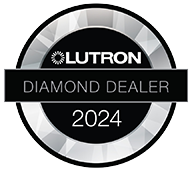Innovative Smart Home Technologies to Elevate Your Lifestyle & Property
- AI-Powered Comfort: Smart home systems in 2025 leverage AI to anticipate needs, personalize settings, and improve energy efficiency.
- Sustainability Focus: Energy-efficient appliances and eco-friendly materials are central to luxury homes, boosting both market value and environmental responsibility.
- Heightened Security: Automated security systems with AI-driven features like biometric entry and real-time alerts enhance safety.
- Wellness-Centered Living: Homes are evolving to include wellness-focused spaces such as meditation rooms, home gyms, and spa-like bathrooms.
- Challenges to Address: Privacy concerns, high initial costs, and ongoing maintenance are key considerations for adopting smart home technologies.
Introduction to a New Era of Living
Imagine stepping into a world where your home anticipates your needs, responds to your presence, and enhances your daily life. Welcome to luxury living in 2025, where innovative smart home technologies are not just a trend but a necessity for sophisticated lifestyles. As we stand at the intersection of technology and comfort, the transformation of our living spaces is unfolding like never before.
Smart home technologies are evolving rapidly, enhancing both functionality and aesthetics in luxury properties. From AI-powered management systems that learn our preferences to energy-efficient appliances that minimize our environmental footprint, these advancements are designed to elevate every aspect of our homes. As consumers become increasingly aware of wellness, sustainability, and the integration of cutting-edge technology, the luxury real estate market adapts to meet these new expectations.
In this article, we will explore the key smart home technologies shaping luxury living in 2025, the emerging trends around wellness and sustainability, and the myriad advantages these innovations offer.
We’ll also address the challenges and considerations homeowners may encounter and provide a glimpse into the future of smart home technologies. Join us on this journey to discover how to leverage these advancements to create a home that embodies comfort, security, and style.
Key Smart Home Technologies for 2025
Welcome to the future of luxury living, where smart home technology seamlessly enhances every aspect of home life—making it not just more convenient, but also more eco-friendly and secure. As we approach 2025, smart home technologies are expected to dominate, particularly in high-end properties. Homeowners will enjoy controlling lighting, security, climate, and entertainment systems with incredible ease, all through the power of advanced automation and AI. With a projected growth rate of 11.43% from 2022 to 2028, the market is booming, reflecting a significant shift in consumer preferences towards integrated smart solutions.
AI-Powered Home Management Systems
Imagine a home that truly understands you—like a personal concierge that anticipates your needs before you even realize them. AI-powered home management systems are setting a new standard in residential comfort by learning from inhabitants’ behaviors and preferences. These systems craft personalized living experiences, adjusting settings throughout your home based on regular patterns and predictive analytics.
From automatically adjusting room temperature to optimizing energy usage, modern AI-driven homes promise enhanced comfort and efficiency. Additionally, these intelligent systems ensure security by distinguishing between residents and visitors, thus improving property safety. The integration of AI contributes to a seamless living experience, as homes learn from daily routines and adjust environmental settings like lighting and temperature. The future promises homes that not only respond but also evolve with their residents, crafting a haven uniquely yours.
Energy-Efficient Appliances
As the world moves towards sustainability, energy-efficient appliances are becoming increasingly indispensable. Leading the charge are appliances equipped with smart grids and load balancing capabilities, which effectively reduce energy consumption during peak hours. Investing in these next-gen products not only shrugs off hefty utility bills over time but also enhances the property’s market value. Homes built with energy efficiency in mind have been selling for about 2.7% more than similar properties lacking in sustainability features.
Energy Management Systems further optimize energy use by dynamically adjusting settings to factors like occupancy and time of day. A notable trend in this green wave is the increased adoption of energy-efficient heat pumps, offering a compelling mix of eco-friendly and economic heating and cooling solutions. As consumers continue to prioritize sustainability, these advancements show a promising impact on the environment and the homeowner’s wallet.
Automated Security Systems
In the realm of smart homes, peace of mind is paramount. Automated security systems are becoming increasingly sophisticated, providing homeowners with real-time capabilities and remote monitoring options right at their fingertips. With live video surveillance accessible through smartphones and other wireless devices, these systems ensure you remain connected to your home’s security, no matter where you are.
Sophisticated features such as motion detectors, real-time alerts, two-way audio, and smart locks add layers of protection over traditional systems. The inclusion of IoT devices in security setups enables real-time threat monitoring and automated responses, ensuring heightened security management. AI plays a crucial role here as well, offering the ability to distinguish between potential intruders and anticipated visitors, which enhances alert accuracy. The marriage of cybersecurity with physical security will further elevate the protection of both digital and physical assets, safeguarding your peace of mind with advanced monitoring and encryption methods.
As we step into 2025 and beyond, these smart innovations are not just enhancing the quality of life—they’re redefining how we interact with our homes. Whether you’re a homeowner, real estate agent, or industry insider, embracing these technologies is the key to staying ahead in an ever-evolving market. Here’s to a future of smarter, more sustainable, and luxurious living spaces!
Trends in Luxury Smart Homes
As we look towards 2025 and beyond, the forecourt of luxury homes is decking itself out with cutting-edge smart home technology.
This tech evolution is not just about embracing the latest gadgetry—it’s about crafting homes that offer unparalleled control, convenience, and elegance. Imagine living spaces where lighting ambiances shift with your mood, where music flows effortlessly from room to room, and where climate systems preemptively cozy up the place before you step inside. With the growing adoption of automated blinds and energy-efficient HVAC systems, future homeowners are set to achieve a sublime comfort level while significantly trimming energy consumption.
Sophisticated security is a cornerstone of these high-end smart homes. Picture delightful peace of mind with AI-driven systems, featuring biometric entry and smart locks that safeguard your sanctuary with unmatched precision. And it doesn’t stop there. With voice-activated systems simplifying every task, from managing entertainment to adjusting room temperatures by mere whispers, your smart home becomes a serene and enchanting environment, effortlessly adapting to your every need.
Sustainable and Eco-Friendly Materials
Sustainability is more than a buzzword—it’s becoming the golden standard in high-end property construction as we head towards 2025. Homeowners are keenly integrating sustainable materials into their luxury abodes, choosing bamboo beams, reclaimed wood accents, and elegant recycled metal finishes to revamp their spaces. This shift towards eco-friendly redesigns, such as adopting low-VOC paints or sleek countertops from recycled glass, underscores a growing environmental consciousness and respects nature’s balance.
Moreover, there’s a clear correlation between eco-friendly homes and premium market values. Premier homes with energy-efficient insulation and appliances aren’t just saving the planet—they’re boosting property values by an estimated 2.7%. Reducing carbon footprints and optimizing energy consumption weave seamlessly with the trend towards automated smart technology. The payoff isn’t just a greener planet; it’s a smarter, more efficient home that saves over 12% in household carbon emissions, embodying both luxury and responsibility.
Wellness-Focused Designs
Health and well-being are taking center stage in luxury home design for 2025, manifesting in wellness-focused amenities that cater to both body and mind. Imagine your own private oasis, equipped with home gyms that inspire fitness, spa-like bathrooms for unwinding, and serene meditation rooms that encourage mindfulness and tranquility.
The allure of wellness doesn’t end at indoor spaces—it extends to curated outdoor areas, lush gardens, and cozy reading nooks which foster relaxation and mindfulness. Research consistently shows that these thoughtfully designed environments bolster mental well-being, highlighting the dual objective of aesthetic delight and health promotion.
This trend has taken root with features like infrared saunas and cold plunge pools making their way into the homes of the well-heeled, blending together luxury, serenity, and the commitment to holistic health. Even elements like outdoor kitchens are being reimagined, providing delightful venues for wellness-engaging activities right at home.
Advantages of Smart Home Technologies
As we peer into the horizon of 2025 and beyond, the landscape of high-end real estate is being beautifully reshaped by the burgeoning advancements in smart home technology. These innovations promise to not only elevate property values but also enrich everyday life, embodying a vision of living that is as eco-friendly as it is luxurious. Let’s explore how smart home automation is revolutionizing residential spaces through enhanced convenience, increased energy efficiency, and personalized living environments.
Enhanced Convenience and Comfort
Imagine a home that intuitively understands your needs, a sanctuary where everyday chores and security checks are seamlessly automated. This is the promise of smart technology—an ecosystem designed to improve quality of life by injecting unprecedented convenience into your daily routines. With the anticipated reach of 400 million households by 2025 embracing smart home systems, the demand for these innovations reflects their immense impact on enhancing comfort.
Incorporating artificial intelligence, these intelligent devices are set to become even more efficient, streamlining tasks such as lighting control and air quality management to create a wellness-focused living space. As mixed-use developments continue to rise, offering walking access to green spaces, luxury homes of the future will provide not only convenience but an experience that enriches physical and mental well-being.
Increased Energy Efficiency
At the heart of smart home innovation lies a commitment to sustainability. Energy Management Systems are the unsung heroes of this eco-friendly future, diligently optimizing energy consumption based on occupancy, time of day, and fluctuating energy prices. This sophisticated approach not only reduces energy bills but significantly diminishes the carbon footprint of your home.
Highlighting these advancements, here’s a glimpse of future-ready smart home features focused on energy efficiency:
- Smart Grids and Load Balancing: Effortlessly coordinate energy distribution during peak hours, ensuring no watt is wasted.
- Smart Thermostats and Energy-efficient Heat Pumps: Revolutionize HVAC systems by smartly adapting temperature settings to fit usage patterns.
- Energy Storage Solutions: Harness the power of renewable energy by storing excess for stormy days, ensuring reliability and cost savings.
Transitioning to these systems can cut your home’s carbon emissions by over 12%, bringing us closer to a sustainable and energy-efficient future.
Personalized Living Environments
In tomorrow’s smart homes, personalization will transcend traditional boundaries to create holistic experiences tailored to individual lifestyles. The sophisticated integration of IoT solutions will craft environments that dynamically adjust to your habits, offering unprecedented control over your living space.
Key features of personalized smart homes include:
- Anticipatory Technology: Learn and adapt to your routines, adjusting settings like lighting and music to match your preferences seamlessly.
- Responsive Environments: Automatically detect arrivals and personalize settings, creating a welcome tailored just for you every time you step through the door.
- Intelligent Systems: Advanced AI-driven technologies will anticipate your needs, making home management as easy as a gentle nod to your intentions.
This level of personalization offers a living experience that resonates with your individuality, making the spaces you inhabit as unique as your fingerprint.
As we move forward, the sophisticated blend of comfort, efficiency, and personalization heralds a new era for high-end properties. By adopting these smart home technologies, not only can real estate agents enhance property values, but homeowners can also enjoy a lifestyle that’s thoroughly modern, effortlessly convenient, and delightfully luxurious.
Challenges and Considerations
As we edge closer to 2025, the landscape of smart home technology continues to evolve, offering exciting opportunities for high-end properties. However, along with these advancements come various challenges and considerations that homeowners, developers, and real estate professionals must address to fully harness the benefits of these innovations. From evolving security needs to the economic implications of smart technology integration, the path forward requires a strategic approach that balances the promise of new conveniences with practical implementation hurdles.
Privacy and Security Concerns
Advancements in smart home security systems, including facial recognition and motion sensing technology, hold the potential to revolutionize home protection by effectively distinguishing between residents, visitors, and potential intruders. These systems offer real-time alerts, two-way audio functionality, and smart locks, providing unparalleled security options. Despite these advancements, privacy and security concerns loom large. As more homeowners integrate technology into their homes, discussions focus on ensuring that these systems are developed responsibly to protect personal data while maintaining robust security. Homeowners are now more cautious about the implications of constant surveillance, driving the demand for solutions that promise privacy alongside increased technological benefits.
Cost of Implementation
As the global smart home market is projected to skyrocket from $80 billion in 2022 to $338 billion by 2030, smart home technologies present substantial investment opportunities. A growing interest in smart home features has been noted, with 70 percent of homebuyers willing to invest more for technology that enhances convenience, time savings, and security. This trend points to the importance of integrating cloud-based systems, particularly in multifamily buildings, which present opportunities to increase safety and efficiency. Although the initial costs of implementing smart technologies might appear steep, the long-term savings and increase in property value deliver compelling reasons for homeowners and developers to invest in these advanced features.
Need for Maintenance and Updates
The integration of smart technology into homes requires proactive maintenance and regular updates to ensure efficiency, security, and optimal performance. As the array of connected devices within homes expands, homeowners face the challenge of keeping these systems up-to-date. Periodic software updates are essential to enhance functionality and mitigate potential security risks, particularly in luxury real estate markets where maintaining an edge in security and comfort is vital. With the ongoing evolution of artificial intelligence and automation, homeowners will need to ensure their systems are aligned with the latest features and improvements, reinforcing the importance of staying informed about advancements to maximize the return on their investment in smart home technologies.
By navigating these challenges thoughtfully, high-end properties can effectively integrate smart technology, amplifying energy efficiency, bolstering security, and paving the way for enhanced quality of life in 2025 and beyond.
Future Outlook for Smart Home Technologies
The horizon for smart home technologies in 2025 and beyond is nothing short of exhilarating. As we continue to witness a growing fascination with integrating technology into our everyday life, smart homes offer an inspiring vision of the future that is simultaneously efficient, secure, and responsive to our needs. By 2025, over half of U.S. consumers are projected to have adopted smart home technologies. This trend reflects a promising 42% growth from 2021. But what is fueling this transformation? Let’s explore how breakthroughs in technology, driven by home energy management systems and sustainable energy sources, are reshaping residences into sophisticated living spaces.
Predictions for Home Automation Advancements
Home automation is evolving swiftly, making it a cornerstone of future residential living. Over half of American households will likely embrace smart home technology by 2025, signifying a substantial increase in demand. By then, Home Energy Management Systems (HEMS) will be more seamlessly woven into the fabric of everyday life, orchestrating our energy consumption efficiently. This system integration will allow real-time monitoring and adjustments, such as automated energy-saving actions that enhance both convenience and sustainability.
Renewable energy sources like solar and wind power will be increasingly integrated into homes as their costs decline. This integration marks a critical trend for energy savings, aligned with the pursuit of eco-friendly homes. The popularity of energy-efficient systems, such as smart thermostats and intelligent lighting, will skyrocket due to sustainability trends, aligning with the eco-conscious buyer preferences. Moreover, the evolution of smart home technology will highlight increased automation powered by artificial intelligence, optimizing daily routines and transforming our quality of life.
The Role of 5G in Smart Homes
By 2025, 5G technology will revolutionize smart homes, setting new standards for automation and energy management systems. Enhanced reliability and speed of 5G networks will lead to real-time monitoring and control of various smart home systems, significantly increasing convenience for users. Smart home devices, with their increasingly advanced and sophisticated features, will require seamless connectivity—a demand thoroughly catered to by 5G’s capabilities.
One compelling application of 5G in smart homes will be its impact on security systems. With support for advanced surveillance technologies, residents will enjoy better real-time monitoring and threat detection, elevating the safety of residential spaces. Furthermore, 5G will empower smart homes to integrate more sophisticated energy management solutions. By facilitating better connectivity among devices, homes will achieve greater energy efficiency, shrinking their carbon footprint and contributing to eco-friendly living.
The convergence of AI, connected systems, and sustainable energy innovations represents a strategic shift towards homes that are not just smart but also intelligent and adaptive, meeting the precise needs of their inhabitants. This transformative period in residential life promises a future where smart homes are a natural part of the real estate market, enhancing building performance and boosting property values. As we navigate these developments, staying aware and adaptable will ensure both consumers and real estate professionals are well-prepared for the exciting innovations that lie ahead.





